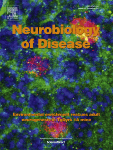Neurobiology of Disease
Neurobiology of Disease is a branch of neuroscience that seeks to understand the fundamental mechanisms underlying neurological disorders and to develop treatments for them. This field combines principles from various disciplines including molecular biology, genetics, cell biology, anatomy, and physiology to explore how diseases affect the nervous system. Neurobiologists of disease investigate the causes, development, and potential treatments for conditions such as Alzheimer's disease, Parkinson's disease, multiple sclerosis, epilepsy, neuromuscular disorders, and many others.
Overview[edit | edit source]
The neurobiology of disease encompasses the study of the cellular, genetic, and molecular mechanisms that lead to neurological disorders. Researchers in this field aim to identify the abnormalities in the brain and nervous system that contribute to disease states. By understanding these mechanisms, scientists hope to develop more effective therapies and interventions for neurological diseases.
Key Areas of Research[edit | edit source]
Research in the neurobiology of disease covers a wide range of topics, including but not limited to:
- Genetic Factors: Investigating the genetic mutations and hereditary patterns that may predispose individuals to certain neurological conditions.
- Molecular Pathways: Understanding the molecular and cellular pathways that are altered in disease states, including signal transduction, neurotransmitter release, and cellular metabolism.
- Neurodegeneration: Studying the processes that lead to the progressive loss of structure or function of neurons, including cell death, in conditions like Alzheimer's and Parkinson's disease.
- Neuroinflammation: Exploring the role of the immune system and inflammation in the development and progression of neurological disorders.
- Brain Imaging: Utilizing advanced imaging techniques to observe changes in the brain associated with disease progression and response to treatments.
Challenges and Future Directions[edit | edit source]
One of the major challenges in the neurobiology of disease is the complexity of the nervous system and the intricate interplay of genetic, environmental, and lifestyle factors in disease development. Additionally, many neurological disorders have overlapping symptoms and pathology, making diagnosis and treatment challenging.
Future research directions include the development of novel therapeutic strategies such as gene therapy, stem cell therapy, and personalized medicine. There is also a growing interest in understanding the impact of lifestyle factors, such as diet and exercise, on the prevention and management of neurological diseases.
Conclusion[edit | edit source]
The neurobiology of disease is a rapidly evolving field that holds great promise for improving the lives of individuals with neurological disorders. Through continued research and collaboration across disciplines, there is hope for discovering new treatments and ultimately cures for these complex conditions.
Navigation: Wellness - Encyclopedia - Health topics - Disease Index - Drugs - World Directory - Gray's Anatomy - Keto diet - Recipes
Search WikiMD
Ad.Tired of being Overweight? Try W8MD's physician weight loss program.
Semaglutide (Ozempic / Wegovy and Tirzepatide (Mounjaro / Zepbound) available.
Advertise on WikiMD
WikiMD is not a substitute for professional medical advice. See full disclaimer.
Credits:Most images are courtesy of Wikimedia commons, and templates Wikipedia, licensed under CC BY SA or similar.Contributors: Prab R. Tumpati, MD

